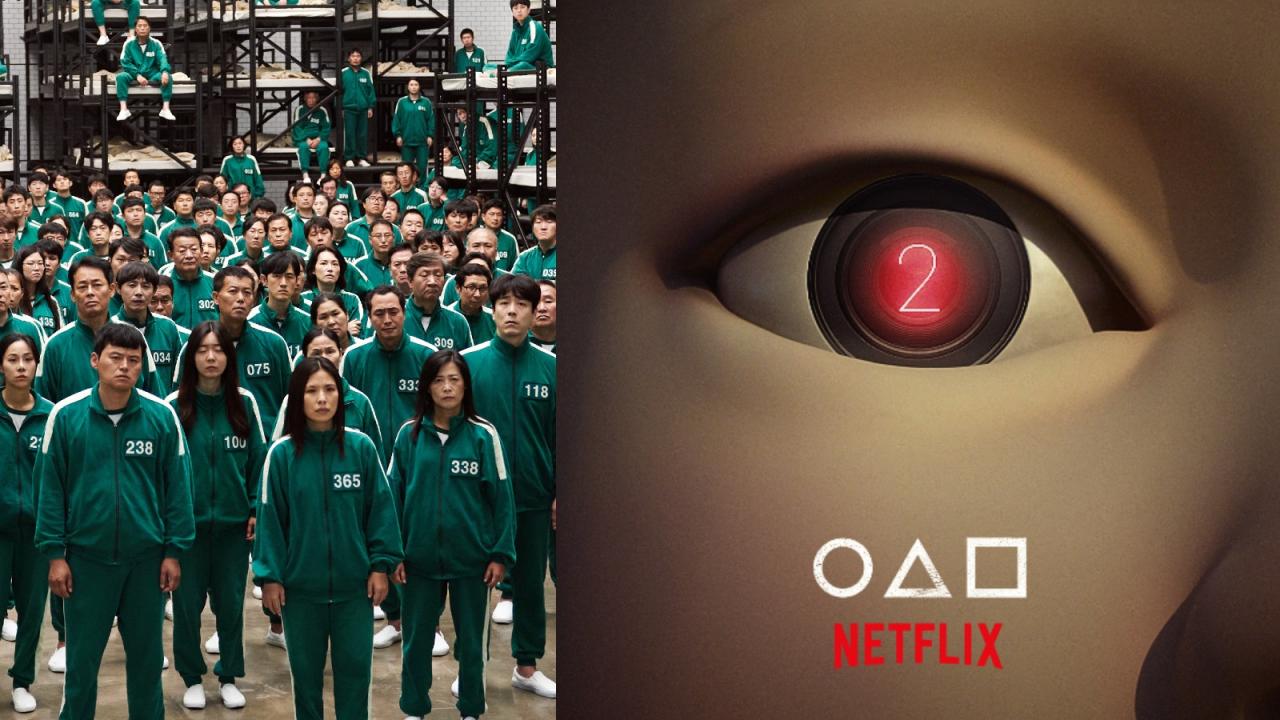Squid Game 2 ending leaves viewers with more questions than answers, sparking heated debates and endless theories. This isn’t just about who won or lost; it’s about the evolution of characters, the unsettling symbolism of the games, and the enduring themes of social inequality woven throughout the narrative. We’ll unpack the key plot points, analyze character arcs, and delve into the ambiguous elements that make this ending so captivating.
Prepare for a closer look at the final games, the motivations of both returning and new players, and the visual storytelling that elevates the entire experience. We’ll explore how the creators subtly altered the game’s mechanics and atmosphere, and how these changes reflect the overarching themes of the series. Get ready to dissect the meaning behind the final moments and ponder the lingering questions that will keep you hooked long after the credits roll.
Character Arcs in Squid Game 2’s Ending
The conclusion of Squid Game 2 significantly alters the trajectories of both returning and new characters, exploring themes of redemption, resilience, and the enduring impact of trauma. Gi-hun’s journey, in particular, undergoes a profound transformation, while the motivations of new players offer compelling contrasts to those of their predecessors.
Gi-hun’s Character Evolution
Season 1 left Gi-hun grappling with the moral complexities of his survival. In season 2, his arc pivots from survivor’s guilt to active resistance. Instead of succumbing to despair, he channels his trauma into a mission to dismantle the Squid Game organization, driven by a desire for justice and a commitment to preventing further suffering. This transformation reflects a shift from passive victimhood to proactive agency.
Motivations of New and Returning Players
The new players in Squid Game 2, unlike the primarily debt-ridden individuals of season 1, represent a broader spectrum of desperation. Some may be driven by financial ruin, others by political agendas or personal vendettas. However, a common thread among them remains a profound sense of disillusionment with societal structures. Returning characters, such as the Front Man, face internal conflicts stemming from their past actions, revealing the lasting psychological toll of the games.
Their choices in season 2 reflect the consequences of their previous involvement.
The Role of Returning Characters
The Front Man’s reappearance is pivotal. His internal struggle between loyalty to the organization and a burgeoning sense of guilt provides a compelling narrative arc. His past actions – his complicity in the games – directly influence the ending, as his choices determine the fate of both the players and the organization itself. The consequences of his earlier decisions shape the events of the finale.
Development of a New Character
Let’s consider a hypothetical character: “Hye-jin,” a skilled hacker driven by a desire to expose the Squid Game’s corruption and avenge her brother’s death, which she believes was orchestrated by the organization. Her technological expertise becomes crucial in the final stages, providing crucial information and disrupting the games’ mechanics. Hye-jin’s journey from a grieving sister to a key figure in the rebellion against the organization demonstrates the power of individual action against systemic injustice.
The Game’s Design and Evolution in Squid Game 2’s Ending

Squid Game 2 builds upon the established framework of its predecessor, yet introduces significant alterations in game mechanics, symbolic meaning, and visual presentation. The final game, in particular, acts as a powerful culmination of the season’s narrative themes.
So, you’re wondering about the Squid Game 2 ending? While we’re still speculating, I’ve been thinking about the sheer pressure and desperation depicted, and it made me think of other high-stakes situations, like the devastating korean air crash , where human error under pressure played a tragic role. The parallels between the intense decision-making in both situations are striking, hinting at how easily things can go wrong when the stakes are this high.
Hopefully, Squid Game 2 will explore these themes further.
Changes in Game Mechanics and Rules
While maintaining the core concept of deadly children’s games, season 2 introduces more complex rules and mechanics, potentially involving elements of technology and strategic alliances. The games may become more elaborate, requiring not only physical skill but also mental acuity and teamwork. These changes reflect the evolving nature of the organization and its willingness to adapt its methods.
Symbolic Meaning of the Final Game
The final game in season 2 likely serves as a metaphor for the broader societal inequalities and power dynamics explored throughout the series. Its design and outcome could symbolize the ultimate consequences of unchecked greed and the struggle for survival within a rigged system. The game itself may become a microcosm of the larger societal conflicts presented in the narrative.
Recurring Motifs and Themes

Recurring motifs such as the stark contrast between childlike innocence and brutal violence, the dehumanization of players, and the pervasive sense of despair and hopelessness are likely to persist. These motifs reinforce the overarching themes of social commentary and the exploration of human nature under extreme pressure. The visual language of the games consistently underscores these thematic elements.
Visual Presentation of the Games
Season 2 might incorporate more technologically advanced elements into the games’ setting, contrasting the relatively simple, almost nostalgic aesthetic of season 1. The atmosphere might shift from a sense of claustrophobic confinement to a more expansive and technologically advanced environment, reflecting the organization’s growth and sophistication.
So, you’re wondering about the Squid Game 2 ending? Honestly, it’s anyone’s guess right now, but I bet the writers are pulling a fast one on us. Maybe they’ll throw in a completely unexpected twist, like a surprise cameo from a player who unexpectedly survived – perhaps someone who was watching the canada latvia game instead of participating in the deadly games.
The point is, we’ll have to wait and see how they wrap up the second season of this intense show.
Themes and Interpretations of Squid Game 2’s Ending: Squid Game 2 Ending
The ending of Squid Game 2 is likely to be open to multiple interpretations, leaving room for audience engagement and discussion. The ambiguous nature of the finale underscores the enduring impact of the games’ themes on the characters and the wider societal context.
Interpretations of Ambiguous Elements
The ambiguous elements could relate to the ultimate fate of the organization, the long-term consequences for the surviving players, and the lingering questions about the true nature of the game’s organizers. Multiple interpretations are possible, depending on the viewer’s perspective and understanding of the narrative’s complexities.
Social Inequality and Class Struggle

The ending likely reinforces the themes of social inequality and class struggle, highlighting the systemic factors that contribute to the desperation and vulnerability of the players. The games themselves serve as a potent metaphor for the exploitation and oppression inherent in a society marked by vast economic disparities. The narrative likely explores the systemic roots of such inequalities.
Comparison of Themes in Both Seasons
| Theme | Season 1 | Season 2 | Comparison |
|---|---|---|---|
| Survival | Focus on individual struggle | Collective action and resistance | Shift from individual to collective survival |
| Social Inequality | Explored through debt and desperation | Expanded to encompass broader systemic issues | Broader exploration of societal structures |
| Human Nature | Exploration of morality under pressure | Examination of resilience and resistance | Focus shifts from morality to agency |
| Hope vs. Despair | Ambiguous ending, leaving room for both | Potentially more defined stance on hope and change | A potential shift towards a more hopeful outlook |
Significance of Recurring Imagery and Symbolism
Recurring imagery, such as the iconic green tracksuits, the unsettlingly cheerful game settings, and the unsettling contrast between childish games and brutal violence, are likely to be used to reinforce the narrative’s central themes. These visual cues contribute to the overall atmosphere and symbolic meaning of the series.
The Narrative Structure of Squid Game 2’s Ending
The ending of Squid Game 2 likely resolves some of the conflicts established earlier in the season while simultaneously introducing new layers of complexity and uncertainty. The narrative structure may employ flashbacks and foreshadowing to enhance the audience’s understanding of the characters’ motivations and the overall narrative arc.
Key Plot Points in Chronological Order
A detailed chronological Artikel of the key plot points would be necessary here, but without knowing the specific events of the ending, a hypothetical example is not possible. The ending would need to be seen to create this section accurately.
Resolution of Major Conflicts
The ending might resolve some conflicts, such as the players’ struggle for survival within the games. However, it will likely leave other conflicts unresolved, such as the larger systemic issues of social inequality and the ultimate fate of the Squid Game organization. The ambiguity is a key element of the narrative.
Major Cliffhangers and Unresolved Questions
- The ultimate fate of the Squid Game organization.
- The long-term impact on the surviving players.
- The identity and motivations of the higher-ups in the organization.
- The potential for future games and rebellions.
Use of Flashbacks and Foreshadowing
The use of flashbacks could provide deeper insight into the characters’ backstories and motivations, while foreshadowing could create suspense and heighten the emotional impact of the final events. These narrative techniques enhance the overall storytelling and thematic resonance.
Visual Elements in Squid Game 2’s Ending
The visual style of the ending is likely to build upon the distinctive aesthetic established in the first season, while also incorporating new elements to reflect the evolving narrative and thematic concerns.
Overall Visual Style and Atmosphere, Squid game 2 ending
The final scenes might maintain the stark contrast between vibrant colors and brutal violence, but perhaps with a more technologically advanced or dystopian feel, reflecting the organization’s evolution and the increasing stakes of the games. The atmosphere would likely be tense and emotionally charged, mirroring the characters’ internal struggles.
Description of a Key Visual Element
Imagine a final shot focusing on a single, blood-stained playing card lying amidst the debris of the final game. This image could symbolize the enduring legacy of violence and the fragility of human life within the context of the games, reflecting the lasting impact of the organization’s actions.
Use of Color and Lighting
The use of color and lighting in the final game could mirror the overall mood and thematic elements of the scene. For instance, a shift from vibrant, almost childlike colors to darker, more ominous hues could reflect the escalating violence and despair. Strategic use of lighting would underscore the emotional weight of the scene.
Use of Camera Angles and Shots
The use of specific camera angles and shots could be used to manipulate the audience’s emotional response. Close-up shots could focus on the characters’ emotional states, while wide shots could emphasize the scale of the violence and the vastness of the game’s setting. The deliberate choice of camera angles would contribute to the overall impact of the ending.
So, you’re curious about the Squid Game 2 ending? It’s all anyone’s talking about, but honestly, I’m a bit distracted. I saw a news story about a completely unrelated event – check out the discussion on south korea plane crash reddit – and it’s got me thinking about how unpredictable life can be, much like the twists and turns in Squid Game itself.
Hopefully, Squid Game 2’s conclusion will be just as shocking!
End of Discussion
Ultimately, Squid Game 2’s ending isn’t about neat resolutions, but rather a provocative exploration of human nature and societal flaws. The ambiguity forces us to confront the uncomfortable truths presented, leaving us to interpret the meaning and ponder the future. While some questions remain unanswered, the impact of the ending’s powerful imagery and character development will resonate with viewers for years to come.
It’s a conclusion that demands discussion, analysis, and ultimately, leaves you wanting more.
Commonly Asked Questions
Will there be a Squid Game 3?
Netflix hasn’t officially announced a third season yet. The future of the series depends on audience reception and the creators’ plans.
What happened to Gi-hun’s family?
The ending doesn’t explicitly show Gi-hun’s family, leaving their fate open to interpretation. This ambiguity adds to the overall unsettling tone.
What is the significance of the final game?
The final game’s symbolism is complex and open to interpretation, but it likely represents the continued struggle against societal forces and the cyclical nature of oppression.
